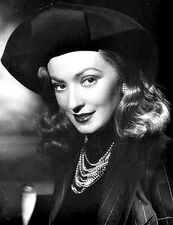Gylian presidential election, 1982
| |||||||||||||||||
| Turnout | 94,5% | ||||||||||||||||
|---|---|---|---|---|---|---|---|---|---|---|---|---|---|---|---|---|---|
| |||||||||||||||||
File:Gylias-elections-presidential-1981-final.png | |||||||||||||||||
| |||||||||||||||||
Presidential elections were held in Gylias on 22 January 1981.
Liberal Union candidate Len Resis defeated independent candidate Doris Duranti, whose strong showing was attributed by observers to the electorate's frustration with the wretched decade.
Procedure
The election was held through instant-runoff voting.
Candidates were registered with Elections Gylias in accordance with normal procedures. They could either be nominated by a political party or electoral bloc, civic organisations, or self-nomination as independents.
Candidates
| Candidate | Nominator | Office(s) held | Details | ||
|---|---|---|---|---|---|
| Len Resis | 
|
Liberal Union | None | Campaigned as the main liberal candidate. | |
| Doris Duranti | 
|
Independent | Regional Councillor for Alţira (since 1978) |
Campaigned on promotion of the arts and culture. | |
| Lea Kersed | 
|
National Bloc | Deputy for Nerveiík-Iárus-Daláyk (since 1969) Leader of the Opposition (since 1976) |
Campaigned as the main conservative candidate. | |
| Édith Champion | 
|
Progressive Alliance | None | Campaigned as the main leftist candidate. | |
| Meiko Kaji | 
|
People Power-Citizens' Movement | None | Campaigned on promotion of anarchism. | |
| Françoise Chatelain | 
|
OMFLG–ACFEN | None | Campaigned on promotion of francité. | |
| Luiza Monteira | 
|
Centre of Constitutional Monarchists | Deputy for Ḑarna (since 1980) |
Campaigned on promotion of monarchism. | |
Results
| Candidate | Nominator | First count | % | Final count | % | |
|---|---|---|---|---|---|---|
| Len Resis | LU | 1.693.593 | 20,9% | 3.885.799 | 53,4% | |
| Doris Duranti | Independent | 1.653.077 | 20,4% | 3.390.979 | 46,6% | |
| Lea Kersed | NB | 1.223.601 | 15,1% | |||
| Édith Champion | PA | 1.199.291 | 14,8% | |||
| Meiko Kaji | PP-CM | 1.004.811 | 12,4% | |||
| Françoise Chatelain | OMFLG–ACFEN | 786.022 | 9,7% | |||
| Luiza Monteira | CCM | 364.649 | 4,5% | |||
| Others/write-ins | 178.273 | 2,2% | ||||
| Total | 8.103.316 | 100% | 7.276.778 | 100% | ||
| Registered voters and turnout | 8.670.311 | 94,5% | ||||
Maps
Analysis
The election reflected the deepening problems of the wretched decade, and featured a similarly glum atmosphere with less of the colourful eccentricity of the Golden Revolution-era presidential campaigns, mainly represented by perennial mainstays Françoise Chatelain and Luiza Monteira.
Lea Kersed, leader of the National Bloc and incumbent opposition leader, chose to run for the presidency in an attempt to break the parliamentary impasse that had developed since the previous year's federal election. She also sought to keep the public's attention on the Progressive Alliance's failure to take up her grand coalition proposal, casting them as the obstacle to a resolution. The PA, for its part, planned not to field a candidate, until Édith Champion demanded to run on their behalf. The actress Meiko Kaji volunteered to run in order to ensure anarchists were represented, and received an endorsement from People Power-Citizens' Movement.
The first count was tight, with five candidates in the range of 12%–20% and narrow margins between them. Liberal Union candidate Len Resis won pluralities in the traditional liberal strongholds of Arxaþ, Alţira, and Elena, with the addition of Envadra, and finished first. Doris Duranti, running as an independent, made a strong showing, winning pluralities in the Tomes–Ḑarna–Aðuna–Herlan southern belt, and somewhat surprisingly, Kausania.
Lea Kersed finished third overall, winning pluralities in Nerveiík-Iárus-Daláyk and Nauras. However, her first preference vote underperformed the NB's tally in the 1980 federal election by almost 5% — while she was well-respected among voters, they saw her more as a credible future Prime Minister and were thus reluctant to elect her President. Édith's campaign was dogged by public frustration with the PA's participation in the Aén Ďanez government, which she opposed, and she finished fourth with pluralities only in the northern mountain regions and Mişeyáke — a worse showing than Lucrezio Parisi's in 1976.
Meiko Kaji easily took pluralities in Sváen and Nezyál, aided by their reputation for political eccentricity, and won a plurality in Tandar largely as a protest vote.
The final count dramatically reversed the map, with only Kausania and Envadra staying in the same camp. Len largely gained transfers from Lea and Luiza's voters, while Doris largely gained transfers from Édith, Meiko, and Françoise's voters. It was reported that some Édith voters preferenced Len second to symbolically express a desire to rebuild the PA–LU alliance. The centre-right transfers helped carry Len to victory by 53,4% to 46,6%, despite him carrying less regions – 9 compared to Doris' 11.
The final map reflected a northern–southern political divide that dated back to the Liberation War. Having become the main leftist candidate by default in the final round, Doris won the north through PA and PP-CM vote transfers, and swept Arxaþ and Alţira with lopsided majorities of 70%–80%, aided by a campaign that emphasised her fame as an Alscian actress in regions where nostalgia for Alscia remained a potent force. However, this was not enough to match Len's sweep of southern Gylias, including his decisive majority in Nerveiík-Iárus-Daláyk.
In the long run, the election had an impact on federal politics. It dissuaded Lea from any further presidential bids and benefited her popularity, enabling her to lead the NB to a plurality in 1985. It also gave Édith exposure as a talented and charismatic campaigner despite her poor result, paving the way for her election as Governor of Nauras the next year and establishing her as a rising star in the PA.

